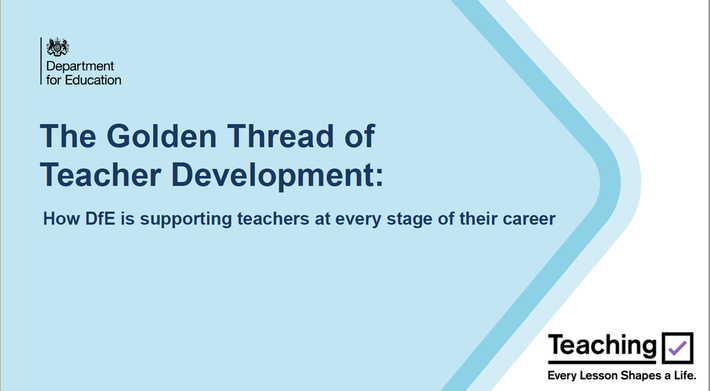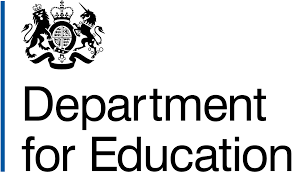|
We are pleased to bring you this final UPDATE of the academic year 2023 - 2024.
Associate & Strategic Leader of Teaching & Research Schools (ESW) Roger Pope CBE begins by considering the secret behind the atmosphere of purpose and calm on a recent LSSW Connect Study Tour Visit to Dixons Academy Trust in Leeds and Bradford: "I was struck by how clearly the leaders articulate what they are doing, why they are doing it and how they are doing it. They speak with a confidence and clarity that is inspiring. They have developed systems that work for every aspect of their operation. They check those systems are working. They invest in staff training and growth. And everything is rooted in the transparent vision and values of the Trust and the individual schools." And ends with a rallying cry to end the year - inspiring all school leaders and staff to return energised after a good break this summer. We look back on the 2024 Summer Conference with collaboration at its heart, knowing that some events are worth reliving. We thank, once again, all our speakers, sponsors and of course, the delegates for being with us. “If everyone is moving forward together, then success takes care of itself.” (Henry Ford) Primary and Secondary Teachers of Art recently enjoyed their very own dedicated Devon Art Teachers' Conference with an enriching and engaging agenda, plus inspiration from the Bovey Tracey’s annual Craft Festival. As a thank you to all Governors, but celebrating this one as he prepares to retire, we interview Paul Brooks, Chair of Kingsbridge Community College Governing Body and SWIFT Trust Board who shares his thoughtful insights into education over the past 40 years. With the ever-important issues of attendance, Kingsbridge Research School explains the Education Endowment Foundation’s new guidance on supporting schools with attendance structured around six evidence-informed themes. Another readable feature is from our sponsor SchoolPro TLC who shares their GDPR and Data Protection expertise in understanding the Birmingham Children’s Services Data Breach and the implications and guidance for school and MAT leaders. Our sponsors have been busy too. The foodie pictures say it all as Educatering whets our appetites in showcasing their menu of delightfully nutritious and exciting food in its school year wrap up. Lucky schools. Exeter Supply Partnership understands the importance of professional development for teachers, but appreciates access whilst working as a supply teacher or Teaching Assistant is not always easy. This is why they provide access to FREE courses and webinars to support their Supply Team to keep up-to-date whilst working and to help them to prepare for the next step in their career. ONVU Learning reflects on excellent teachers creating excellent memories and the characteristics of great teachers. If this sounds like something for you, you can meet and find out more about ONVU Learning in a FREE webinar on Thursday 11 July 2024 from 0830 – 0900. Register here Wherever you are, we hope that these final few weeks will be enjoyable and fulfilling for you all. We are not there yet, but the summer break awaits and we wish you the loveliest holiday and thank you for working with us this year.
0 Comments
We are delighted to open registration to Schools, Federations, Multi Academy Trusts and other organisations to join SWIFT Membership for 2024 - 2025. SWIFT Membership goes from strength to strength and this academic year over 220 schools are members of SWIFT. SWIFT Membership offers Schools and Trusts outstanding value. Our low-cost, £2 per pupil fee offers you unlimited access to the following highlights:
SWIFT Membership saves staff time as well as money. Our booking system on Eventbrite enables quick access to all our events and makes it quick and easy to register. Many of the 2024 - 2025 courses are live for bookings now HERE and many more will be added across the year. Increasingly, schools are using SWIFT to support staff training linked to appraisal, providing a quick, one-stop-shop for staff development needs. Powering SWIFT Membership is the dynamic SWIFT partnership of Schools and Trusts that curate, design and facilitate courses, Professional Communities, Forums and Conferences. We are proud to work with these brilliant teams from across the Devon, Plymouth and Torbay area reflect the best of the school-led system.
With the Summer Term well underway and a Bank Holiday afoot, we are pleased to bring you this May issue of UPDATE.
Associate & Strategic Leader of Teaching & Research Schools (ESW) Roger Pope CBE opens with thoughts on the different contexts for teachers, doctors and surgeons: "Think of the complexity of a school, where in a class, 30 people are all interacting with one another, or a school where hundreds are interacting. Factor in the added complexity of the family and friendships context. The fact that every child learns slightly – or even hugely – differently, brings an infinitely varied range of previous learning and experience to any given moment in a lesson, an infinite range of emotional responses and is growing and changing by the day…hour…minute. Add in the complementary complexity of the teacher" Read some of the highlights from the The MaternityTeacher PaternityTeacher Project and WomenEd The Mother of All Pay Gaps Conference and the Summer Term Estates Management Professional Community. Newly appointed Regional Lead for the South West for Whole School SEND, Emma Vyvyan Find shares some of her good intentions in our interview and their professional development offer to support you and your children and young people. Helen Thorneycroft from the Kingsbridge Research School guides on teachers emphasising the ‘Why’ while modelling: “Teacher discussions that allow students to elaborate on their ideas or their methods, to reason out their thinking and question their strategies, have been associated with progress measured in the form of improved test scores.” Sensitive to staff data sharing in mental health emergencies, data experts SchoolPro TLC outline essential guidance based on recent updates from the Information Commissioner’s Office (ICO) and provides some key takeaways for you. Our other sponsors provide details of their services. Educatering awakens appetites with new menus this Summer Term and photos to prove it and also prove their local credentials with supplier appreciation for their valued partnership with Dartmoor Farmers, who have been farming the land for thousands of years and who provide beef and lamb for school lunches. ONVU Learning considers the merits of teacher-led continuing professional development and championing autonomy in professional development and challenges traditional professional development models. You can meet ONVU Learning in a FREE Excellent Teachers Create Excellent Memories Webinar on Thursday 11 July 2024 from 0830 – 0900 and at our Summer Conference on Thursday 13 June 2024. And Exeter Supply Partnership Teacher provides top tips for getting into primary supply teaching with their professional support and care. "There are many supply teaching agencies out there, so you need to find the one that suits you and your needs best." We wish you a fulfilling remainder of this term and a lovely Bank Holiday weekend.  “I enjoy nurturing partnerships and I am continuously reminded of their importance in every we do.” As we embrace this new year as a time of renewal and revitalisation and as the culmination of the first four-years cycle of Teaching School Hubs, it seemed opportune to check in with our Executive Director, Martin Smith to reflect on his role in leading the Colyton and Kingsbridge Teaching School Hubs, as you will know as SWIFT (South West Institute for Teaching). Martin started his career as a Teacher of History in Herefordshire and became an Advanced Skills Teacher early in his career, working as a Teaching and Learning consultant for Gloucestershire Local Authority. For four years he was Deputy Head of a rural 11 to 18-years school in Herefordshire, before becoming a secondary Headteacher in East Devon for eight years. As the backdrop to his current leadership, Martin led the formation of the Dartmoor Teaching School Alliance and in 2020 he was appointed founding Director of Teaching Schools South West (TSSW) as one of six Department for Education’s test and learn Teaching School Hubs with Kingsbridge Community College the lead school. A year later, with the roll-out of 81 further Teaching School Hubs as national centres of excellence, Martin orchestrated combined of operations with the newly formed Colyton Teaching School Hub, with Colyton Grammar School the lead school to create SWIFT. 1. What did you anticipate from your role of leading the Test and Learn Teaching Schools South West (TSSW)? I anticipated that there was a great opportunity to create a system for schools that was more joined-up with less duplication, and less overload of providers delivering similar programmes. This, of course, was mainly the professional development Early Career Framework (ECF) programme, before the launch of the reformed National Professional Qualifications (NPQ's) and before the Department for Education’s Golden Thread of professional development. My role was to focus on bringing together partners who were experienced in making significant contributions in the area and included the former Teaching School Alliances and Multi Academy Trusts who were emerging onto the scene and growing rapidly. As part of my role, I anticipated bringing together the different components into a coherent partnership framework. 2. What do you believe to be the most important function for Teaching School Hubs and has that changed over the past four years? The most important function is to provide high-quality professional development for teachers and leaders because we know that if teachers and leaders engage in high-quality professional development, it has a positive impact on the quality of what they do in the classroom and the outcomes for young people. Teaching School Hubs also have a key role to play in the teacher recruitment and retention agenda. Recruitment, by improving initial teacher training (ITT) and making it accessible to more people. Retention, in running high-quality Early Career Framework programmes that support new teachers, and inspire them to stay in the profession for longer, and to provide a pathway for more experienced school leaders through the NPQs so that this journey of growing and developing continues beyond the first few years of teaching. Therefore, well trained and supported teachers are more likely to stay in the profession for the longer-term and Teaching School Hubs are making an important contribution to the recruitment and retention of teachers. It is also important to create a coherent and accessible professional development structure for Schools and Trusts. One of the drawbacks of the previous iterations of Teaching Schools was working with a large and disparate number of Teaching School Alliances – along the lines of 14 across Devon, Plymouth and Torbay, all of which were providing their own professional development and initial teacher training and as a Teaching School Hub we wanted to create a clear and accessible marketplace for schools to access high-quality professional development. A clear marketplace incentivises and supports schools to engage in professional development. 3. What has been the most constructive learning point to date in your tenure as Executive Director of SWIFT? It is more of a validation and something that is constantly validated for me is the importance of partnership in building long-term high-quality partnerships based on strong relationships with trust, a genuine collaboration, sharing and a generosity between partners. I enjoy nurturing partnerships and I am continuously reminded of their importance in every we do. 4. What do you find to be the most personally rewarding for you in the role? Personally, I have always enjoyed seeing people flourish in their roles and organisations and knowing that as Teaching School Hubs, we are enabling colleagues across the profession to take on new opportunities. Whether it is to design an ITT curriculum, become an ECF Mentor, lead ECF Mentors or facilitate an NPQ. I think that these opportunities across the partnership are truly inspiring and we know that they can make an important difference to people's professional lives. In addition, we now have a not-insignificant SWIFT Central Team of ten people and it is very gratifying to see them grow and develop as individuals and as a team to embrace challenges and celebrate successes. 5. What would be your vision and hope (s) for the next four years of Teaching School Hubs? If we are successful in our re-designation for the next four years, I think my vision will largely remain the same to create those high-quality pathways for teachers from initial teacher training through to Executive Headship and to continue to develop and ensure that these opportunities are meaningful and relevant. We always want to give schools in the South West the best of regional, national and available evidence. We have always believed very strongly in our vision to give South West leaders the best opportunities available and we are committed to this mission that continues, not least with the exciting opportunity we now have with SWIFT Teacher Training to increase the number of teachers entering the profession across our area. There are many great ITT providers within our region and we want to work alongside those existing providers to support potential trainees with the requisite skills and commitment who wish to get into teaching. I also hope that we can adapt to the changing educational context towards larger Multi Academy Trusts (MATs) and at a practical level, as Teaching School Hubs, we are very keen to be responsive to the needs of growing MATs and offer more personalised approaches to ITT and NPQs that allows them to access the benefits of a national programme, but at the same time put their own Trust stamp on the experience. We thank Martin for his reflections and his continued leadership of SWIFT. Interview by Jude Owens, SWIFT Executive Assistant In this final issue for this academic year, ESW Associate & Strategic Leader of Teaching & Research Schools | Education South West, Roger Pope CBE considers in this continued post-pandemic aftermath, “Why is it that our leadership skills are being challenged to such lengths?”
"So, this is when we have to dig deep into our leadership reserves. It’s a time when we have to believe in ourselves, to let go of what we cannot change and focus on those things that we can influence in our own schools." Building on SWIFT's commitment to Diversity, Equality and Inclusion (DEI), SWIFT's Professional Community lead, Ruhaina Alford, Executive Headteacher of The Carey Federation gives us an end of term report. At this point of end of term completeness, you can read about SWIFT's Director, Chris Harris's reflections as he ends his tenure with us and an interview with Programme Manager, Fiona McNeile who continues the good work of our programme delivery. And have your say in the Annual Teaching School Hub School Leader Satisfaction Survey. Our sponsor, SchoolPro TLC provides guidance on taking subject access requests seriously and find out some of the latest from Educatering, Exeter Supply Partnership, Lyfta and Praestantia Technology.  “I am very fortunate to have a role that is fulfilling in many ways.” The SWIFT Central Team also counts itself fortunate to have Fiona McNeile as a key team member. Albeit modest sized, the team is highly functional and purposeful with Fiona as Programme Manager for our key Department for Education Golden Thread services from the Appropriate Body Service and Early Career Framework for Early Career Teachers, to National Professional Qualifications for aspiring school leaders. Fiona transitioned seamlessly to her role in SWIFT having previously worked as Business Manager with the former Dartmoor Teaching School Alliance; which has helped to enhance and evolve her understanding of the emerging role of Teaching School Hubs. We value Fiona for her clarity, diligence, pragmatism, and powerful work ethic and drive. As this second complete year of the Early Career Framework draws to a close, we thought that it would be fitting to invite Fiona to reflect on the programme. 1. As SWIFT Programme Manager what are your number three priorities working closely with teachers and school leaders? As SWIFT Programme Manager, a key priority is to work with our SWIFT Team to ensure consistent, high-quality programme delivery to all schools in our region. The processes and requirements of the Golden Thread programmes are complex, and my aim is to support schools by providing access to the world class programmes with minimum workload for leaders and teachers. Having worked in educational support roles for over six years, I have built an in-depth understanding of the pressures and demands on schools, Multi Academy Trusts (MATs), leaders and teachers. We work hard as a team to keep informed through constant one-to-one communication with SWIFT schools and leaders to ensure our delivery models are aligned to the needs of the region. This has been key to the continuous improvement and development of enhancements beyond the requirements of the Golden Thread programmes and services which are now in place. 2. What is most rewarding for you personally in your role as SWIFT Programme Manager? I am very fortunate to have a role that is fulfilling in many ways. From our Early Career Framework (ECF) programme, it is a privilege to be able to support Early Career Teachers (ECTs) to develop their craft and to progress in their careers. Already we have Year 2 ECTs who have completed their SWIFT ECF programme and statutory inductions, who will be Mentors to new Year 1 ECTs in September. Others are fulfilling Subject Lead roles or taking on School Leadership Team responsibilities, and many are progressing their training through the National Professional Qualifications (NPQs). To be part of this journey is very rewarding and from my Appropriate Body Service role, I learn how this translates in the classroom and affects whole school progress. As NPQs Programme Manager, it is humbling to support future leaders and be part of their career journey too. I also get to work with awesome and fascinating professionals! MAT CEOs, Mentors, Facilitators and Delivery Leads, Subject Specialists, ECTs, the wonderful network of SWIFT partners and our super SWIFT Central Team mean that I learn something new every day. Given the variation to my role, I am lucky that there is never a dull moment! 3. What has been the biggest challenge (if any) and how have you successfully overcome it? Moving from a Teaching School Alliance Business Manager role to a regional Teaching School Hub Programme Manager role was a shift in gear and I have had to upskill my knowledge in national programme delivery requirements extremely quickly. As with any change to the education system, navigating the best path for delivery to schools which best meets local needs has also taken a lot of careful planning and I would not have been able to do this without the support of our Central Team, in particular, Chris Harris, SWIFT Deputy Director who has been my Line Manager for the past two years and a wonderful Mentor and also Natalie Markham and Elisabeth Wandl who are superb administration professionals. 4. What do you believe to be the most important element of SWIFT that you wish to convey to our Teaching School Hub /programme member schools?
SWIFT exists to serve schools – ‘simple as’ SWIFT staff and partners are aligned in this task to serve schools with quality Continuing Professional Development services and support. We have a shared moral compass demonstrated in all that we strive to achieve. Our Utopia is that all children in our region have high-quality education and we will do all we can to support schools, leaders and teachers to achieve this outcome. This is what SWIFT team members have in mind behind every part of the programme delivery, every email, every conversation and every offer of support. 5. What are your hopes for the next academic year? For the first time in 2023 - 2024 we will be aligning with two lead providers to ensure that schools have the best choices and options available to them for their Golden Thread provision. We have a strong partnership with Teach First, an Ofsted Outstanding ECF Lead Provider and now, through our role as an Associate College, we will be part of the regional research work and programmes led by the National College of Teaching (NIoT). This presents internal challenges as we integrate new processes whilst maintaining the same level of service and delivery. However, these are exciting challenges and whilst we go through some of the ‘baby steps’ I am hopeful that they will lead to further programme enhancements and improvements in our core offer to schools. We thank Fiona for her continued commitment and conscientious good work. "Partnership, relationships, collaboration, good practice. You could call it SWIFT-ness." Education is conventionally cyclical. Pupils and young people evolve and progress through their schooling steps before moving on in their life journey. The same is true of our colleagues. At the end of this academic year, we will be saying a sad farewell, but a grateful thank you to Chris Harris as he moves on to his new role as Deputy Headteacher at The King’s School in Ottery St Mary. Based at our Colyton Office at Colyton Grammar School in his role as Director of Teaching School Hubs and Assistant Headteacher; true to the partnership ethos of SWIFT, Chris has counted himself fortunate to work closely with the Colyton team, as well as the other Central Team members and of course, with our wider SWIFT partnership. The SWIFT Central Team counts itself fortunate that Chris has been with us for two years and we have all benefitted from his dedicated and dynamic leadership that has masterfully been modest and yet momentous in leading on the programme delivery of the Appropriate Body Service (AB), Early Career Framework (ECF) and National Professional Qualifications (NPQs). And always with an eye for detail, calm tenacity, pragmatism – and a superb sense of humour. As SWIFT also evolves and progresses it seemed well-timed to share some of Chris’s reflections on his time with SWIFT and as a tribute to his conscientious work.  It has been important to me and the SWIFT Team to present our essential values in our core SWIFT business so that we are trusted by our schools. This is true of our delivery on the Hub programmes driven by a desire to support all schools of all types - whether a large Multi Academy Trust or a small standalone primary. We want to support them equally and to facilitate and ensure that they are getting access to the best of national programmes and to deliver a high-quality service for all. This trust and support benefits from our knowledge and relationships that we tailor for the local needs of our schools so that the programmes work for everyone. SWIFT wants to be a listening and responsive Teaching School Hub – whether through the small school NPQs adaptations or additional SEND revision in the ECF that we understand is a priority for Devon and with a particular focus on all students to ensure an inclusive approach and to build a sense of belonging. Rooted in partnership has been elemental for our SWIFT work and has been pivotal to the thinking in my role. I would say that my understanding has evolved in terms of the power of partnerships, as together you are more than the sum of your parts (cue our SWIFT logo!) and this certainly has been the scale that we have been working at on the ECF and NPQs. Moreover, it would be impossible to deliver a high-quality service without our essential partnerships in all that we do in the reciprocal relationship of learning from one another and always striving to improve what you do. Not forgetting, the professional value of partnership in working with like-minded focused people and ultimately, as we understand from teaching, we are all driven by a strong moral purpose, on which I like to think my understanding is founded. Partnerships exist on many layers and to deliver effectively you need to be a partner with the schools and teachers and staff themselves and only then, can you truly achieve based on collaboration and consensus, which makes the partnership all the more convincing and robust. Professionally, my role with SWIFT has benefited me in building on this collaboration in being able to develop with some partners that I hope will stay with me throughout my career and I have truly appreciated seeing in action this power of partnerships and understanding that you have to be outward- looking all the time. I have also been in the privileged position of observing many different practitioners at work and listening to different schools and constantly and absolutely sharing good practice. Finally, a vital professional lesson for me is the reminder that you should never be in glorious isolation in our educational world and value your relationships and connections; as well as understanding the national framework in which we operate so that we can best serve the communities we work with. Partnership, relationships, collaboration, good practice. You could call it SWIFT-ness. We wish Chris every success and fulfilment in his new role and thank him for his legacy to SWIFT. We will miss him.  We welcome Jen Knowles, currently Director of West Country Training School Alliance as successor to Chris. I am delighted to be taking on the role of Director of Teaching School Hubs (TSH) from September, building on the excellent foundations laid by Chris and the SWIFT team. It is a privilege to have opportunity to work with 500+ schools across Devon, Plymouth, Torbay and beyond in teacher development at every stage of their career. This next stage of the TSH programme brings openings for further refinement of courses and programmes based on your feedback to further improve the experience of working with us and I look forward to working with you all. And we look forward to working with Jen. Last week, the Department for Education (DfE) presented a live webinar to discover how to support staff at all levels and access the wide-ranging support available from the Department to improve staff experiences and ultimately improve pupil outcomes. The event also featured guest Headteachers who shared their passion for teacher development and discussed examples of how the programmes are supporting the staff and young people in their settings. The webinar included:
To watch the webinar recording, click on the link below and you can also download a copy of the PowerPoint presentation and collated Q&A document.
|
SWIFT News
|
SPONSORED BY
Join us, be a part of our SWIFT community |
© COPYRIGHT 2022 SOUTH WEST INSTITUTE FOR TEACHING SWIFT. ALL RIGHTS RESERVED | Website by brightblueC
VIEW OUR PRIVACY NOTICES | VIEW OUR COURSE T&CS
VIEW OUR PRIVACY NOTICES | VIEW OUR COURSE T&CS











 RSS Feed
RSS Feed





